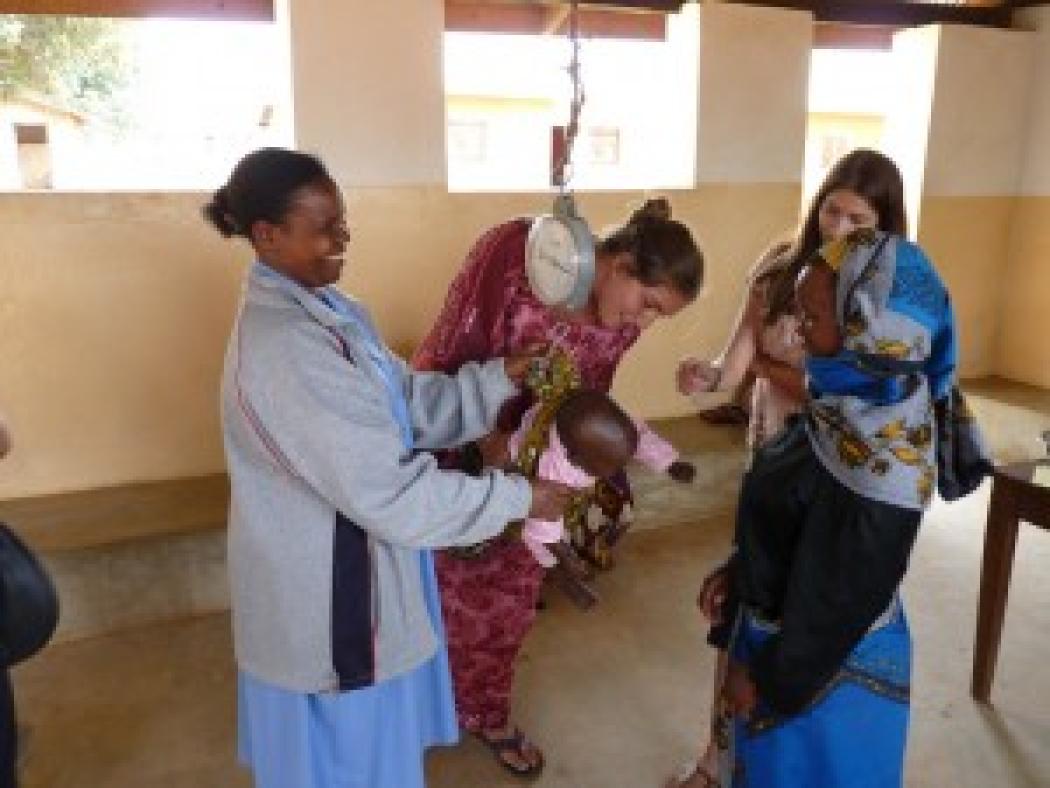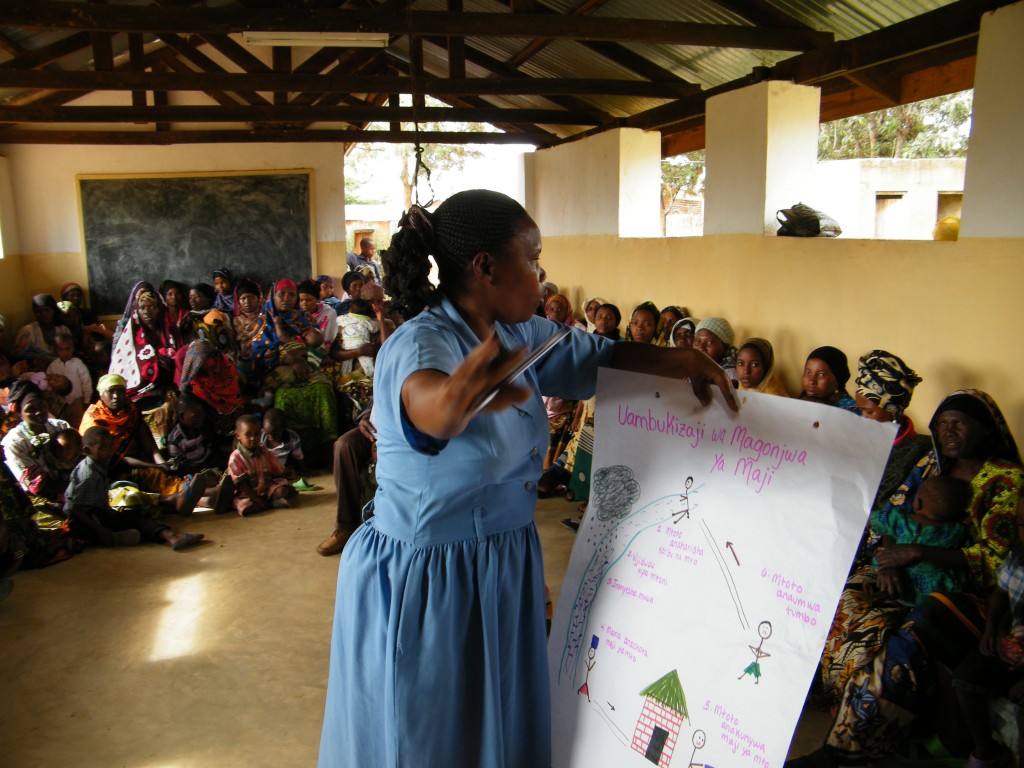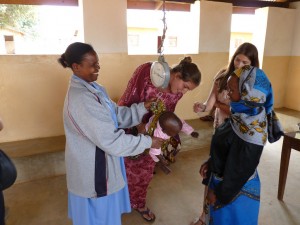Saving Lives in Extraordinary Circumstances in Tanzania

By Heather Teixeira, Frontline Health Workers Coalition
From 2009 to 2011, I lived at a small health clinic in a rural village, Mondo, in the Dodoma region of Tanzania. The clinic—staffed by two health workers: a nurse and an assistant nurse—served a population of 14,000 people. The clinic had been built with housing for the health staff; but unable to fill all of the expected positions for a facility of its size, the village had instead opted to use the spare housing for a Peace Corps Volunteer.
I arrived at the clinic on my 23rd birthday, a Classical Studies major with some background in global health and boundless enthusiasm for helping the clinic however I could. But I quickly discovered that what the clinic needed most I could not provide: they simply needed more health workers.
Helena and Laurencia, the two nurses with whom I worked in Tanzania are without a doubt the hardest working people I have ever met, and they are why Frontline Health Workers Coalition’s call for greater and more strategic United States investment in health workers on the frontlines of care in developing countries resonates deeply for me.
Helena and Laurencia arranged a grueling schedule: they both worked full weeks during all of the hours when the clinic was open, and then alternated weeks being on night and weekend duty, when they responded to emergencies and delivered babies. Given the population size and Tanzania’s fertility rate, this meant that they easily topped 100 deliveries each year.
Within the first several weeks of living in Mondo, I woke up in the middle of the night because of a commotion at the maternity ward, located 20 feet from my front door. Curious, I quickly dressed and walked over to see what was up. I found Helena in the maternity ward, shouting furiously into her cell phone. A woman in the delivery room had obstructed labor and had just hemorrhaged – she was bleeding profusely and needed immediate transport to the district hospital in neighboring Kondoa town.
The district ambulances were out of fuel and unable to come the short 20 kilometers to our village, and as a result Helena was rapidly dialing the taxi numbers of every taxi driver she could think of, all while trying to make sure the woman didn’t bleed to death in front of our eyes. A little more than an hour later, as dawn broke, a taxi arrived to whisk the woman and the clinic’s other nurse to the hospital, where she received the blood transfusions that saved her life. Helena and I stayed behind, wearing long plastic gloves and using powdered laundry detergent to clean the delivery room.
Exhausted, I stumbled back to bed to fall asleep. Helena, however, had a full day’s work ahead of her. After a brief rest she was back in the clinic, delivering all of the other critical health services that she provides: treating the many people each day with illnesses and injuries, from malaria to machete wounds; providing prenatal care services, including testing pregnant women for HIV; charting children’s growth and administering vaccinations; and teaching health education to the groups of young mothers who came to the clinic every week.
While I saw the incredible, lifesaving difference that Helena and Laurencia made in our community firsthand, I also saw the incredible toll taken on communities and on health workers themselves by the critical shortage of health workers in Tanzania – a reality that exists today in many developing countries. It is precisely why Tanzania’s President Jakaya Kikwete during a United Nations General Assembly event last month singled out strengthening the country’s health workforce as the key priority to cutting maternal and child morality.
My experience also convinced me that the progress needed to achieve global health targets in the Millennium Development Goals and post-2015 are possible, as long as we have the boots on the ground needed to deliver critical health services to every person, everywhere.


